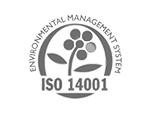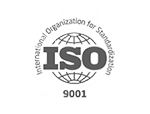Ever wondered why those massive trucks hauling powder and grain require such specialized handling? Transporting bulk materials isn’t as simple as loading and driving away—it’s a complex dance of physics, chemistry, and logistics. From moisture-sensitive powders that clump at the slightest humidity to granular materials that shift dangerously during transit, bulk transport presents unique challenges that can make or break your supply chain. Whether you’re shipping food ingredients, industrial minerals, or chemical compounds, understanding these challenges is crucial to maintaining product integrity and safety.
Understanding the unique challenges in bulk material transport
Bulk material transport presents distinct challenges that require specialized knowledge and equipment to overcome. When moving powdery and granular materials, maintaining the physical properties and chemical integrity of the substances throughout the journey is paramount.
One of the primary challenges is the highly specific nature of different materials. For instance, some powders are hygroscopic (absorb moisture), while others may be prone to static electricity buildup or compaction. Each material requires tailored handling approaches and specialized equipment.
Weight distribution presents another significant hurdle. Granular materials can shift during transport, potentially causing vehicle instability if not properly loaded and secured. This is why specialized transport planning is essential for safety and compliance with road regulations.
Additionally, bulk materials often require specific loading and unloading procedures. The pneumatic systems used for many powder transfers must be precisely calibrated to prevent material degradation, blockages, or excessive dust generation.
Environmental concerns also factor heavily into bulk transport challenges. Dust containment is crucial not only for product quality but also for regulatory compliance and environmental protection. Modern transport solutions must incorporate effective dust management systems.
How do weather conditions affect bulk material transport?
Weather conditions significantly impact bulk material transport, often creating unpredictable challenges that require adaptive solutions. Temperature fluctuations, humidity levels, and precipitation can all dramatically alter the properties and behavior of powdery and granular materials during transit.
Humidity presents one of the most pervasive challenges. High moisture levels can cause powders to clump, bridge, or even solidify in transport containers, making unloading difficult or impossible. This is particularly problematic for hygroscopic materials that readily absorb moisture from the air. In contrast, extremely dry conditions may increase static electricity and dust explosion risks.
Temperature variations can be equally problematic. Freezing temperatures may cause moisture within products to expand, damaging material structure, while excessive heat might trigger chemical reactions or degradation in sensitive substances. These weather-related factors can affect not only the physical state of materials but also their chemical properties and usability.
Seasonal challenges require forward planning. Winter conditions demand additional precautions against freezing and moisture, while summer months might necessitate protection against heat exposure. For businesses requiring year-round material delivery, these seasonal variations can impact scheduling and require alternative routing options.
What contamination risks exist when transporting bulk materials?
Contamination represents one of the most serious risks in bulk material transport, potentially compromising entire shipments and causing significant financial and reputational damage. Cross-contamination between different product loads is the most prevalent concern, especially when transport equipment handles multiple materials.
Residue from previous loads can introduce foreign particles that alter product composition or functionality. This is particularly critical in food and pharmaceutical transports, where even microscopic contamination can render products unusable or dangerous. Chemical industry products may react with residues, creating quality issues or safety hazards.
Environmental contaminants pose another significant threat. During loading and unloading operations, materials are exposed to ambient air that may contain moisture, dust, or industrial pollutants. Without proper sealing systems, these contaminants can infiltrate the load during transit.
Equipment-related contamination sources include wear particles from transport containers, lubricants from pumps or compressors, and even cleaning agent residues if thorough rinsing procedures aren’t followed. Many industries have established strict protocols for equipment cleaning between loads to mitigate these risks.
Proper documentation and traceability are essential components of contamination prevention. Detailed records of previous loads, cleaning procedures, and material testing help ensure quality control throughout the transport chain.
How can companies overcome bulk transportation logistics challenges?
Overcoming bulk transportation logistics challenges requires a multi-faceted approach that combines specialized equipment, staff expertise, strategic planning, and technological solutions. The most effective strategies address both immediate operational concerns and long-term efficiency goals.
Specialized equipment selection forms the foundation of successful bulk transport operations. Vehicles and containers must be specifically designed for the materials being transported, with features like proper sealing systems, temperature control capabilities, and appropriate discharge mechanisms. Regular maintenance of this equipment is equally important to prevent contamination and ensure reliable performance.
Comprehensive staff training is essential, as bulk material handling requires specific expertise. Drivers and operators need to understand the unique properties of different materials, proper loading/unloading procedures, and emergency response protocols. This specialized knowledge significantly reduces the risk of handling errors that could compromise material quality.
Advanced planning strategies help mitigate logistical challenges. This includes route optimization to avoid adverse weather conditions, scheduling that accounts for seasonal variations, and contingency planning for unexpected delays. Many companies use sophisticated transport planning systems to coordinate these complex logistics variables.
Technology implementation has revolutionized bulk transport management. Real-time monitoring systems can track temperature, humidity, and pressure conditions during transit, alerting operators to potential issues before they affect material quality. GPS tracking enables precise delivery timing and provides valuable data for route optimization.
For companies facing challenging logistics situations, seeking expert advice can make a significant difference. Experienced transport providers can offer valuable insights into best practices and customized solutions.
At Powder-Trans, we understand these challenges firsthand, having specialized in powdery and granular material transport for over five decades. Our experience has taught us that successful bulk material transportation requires both technical expertise and a commitment to continuous improvement in how materials are handled and transported.






